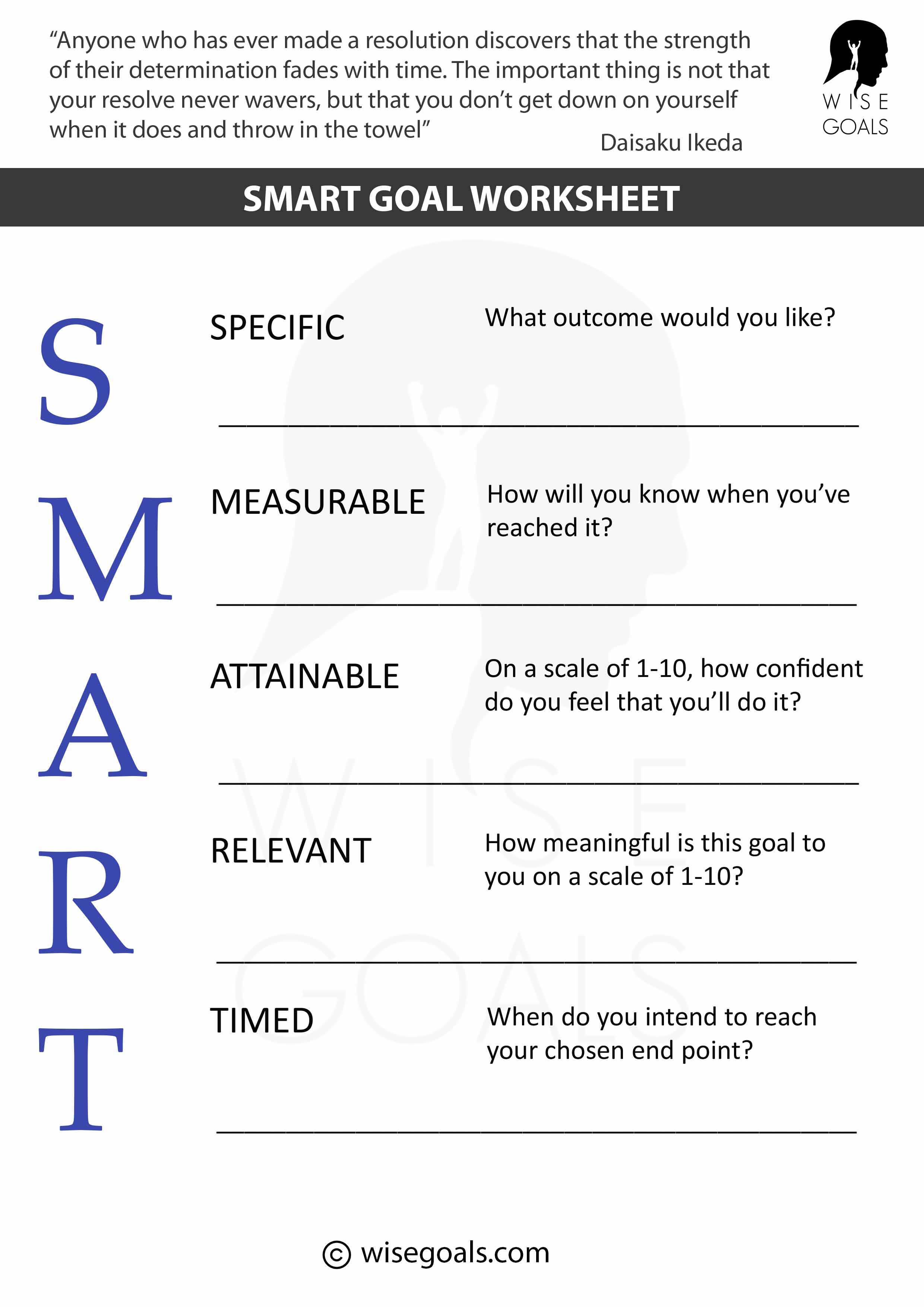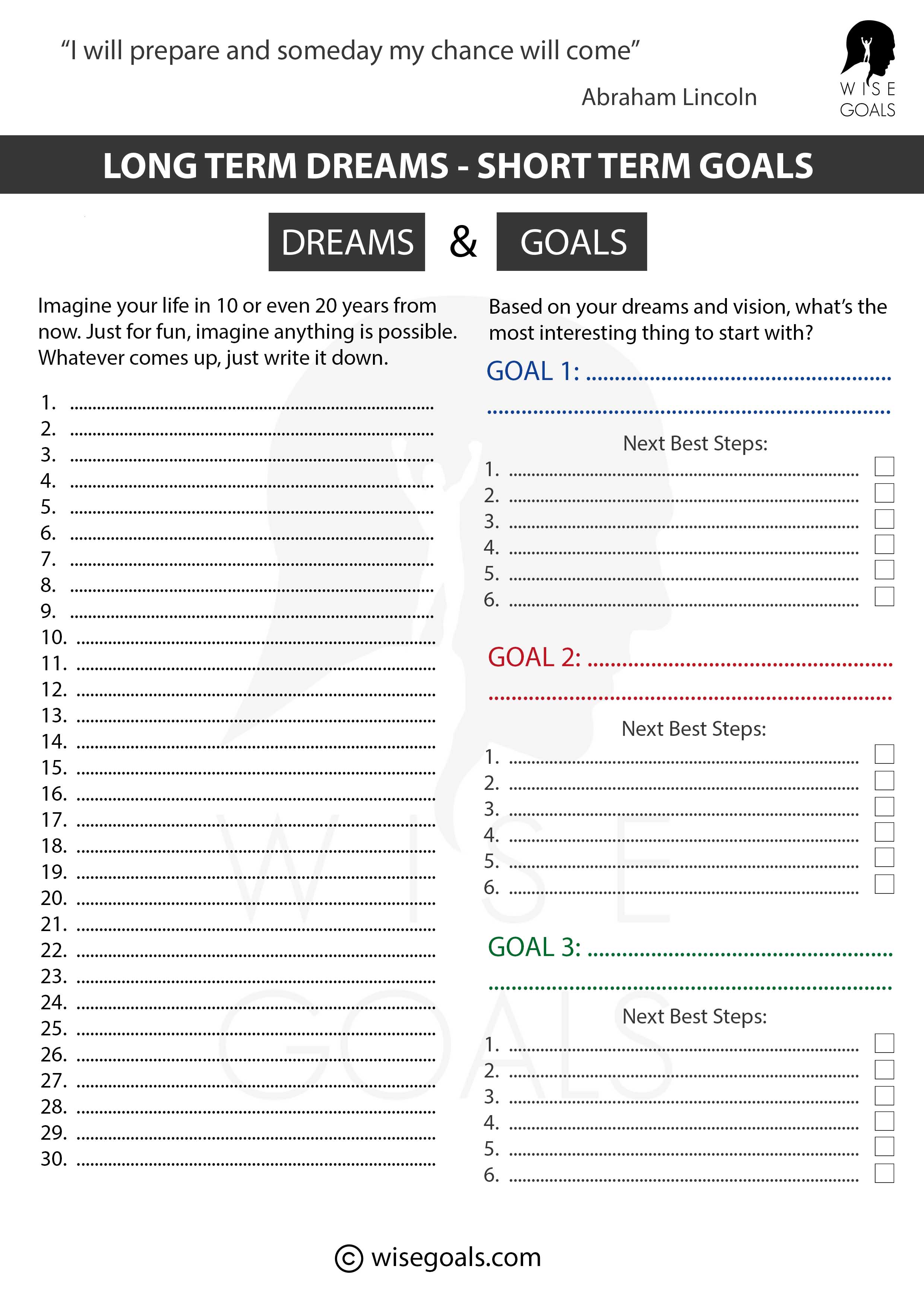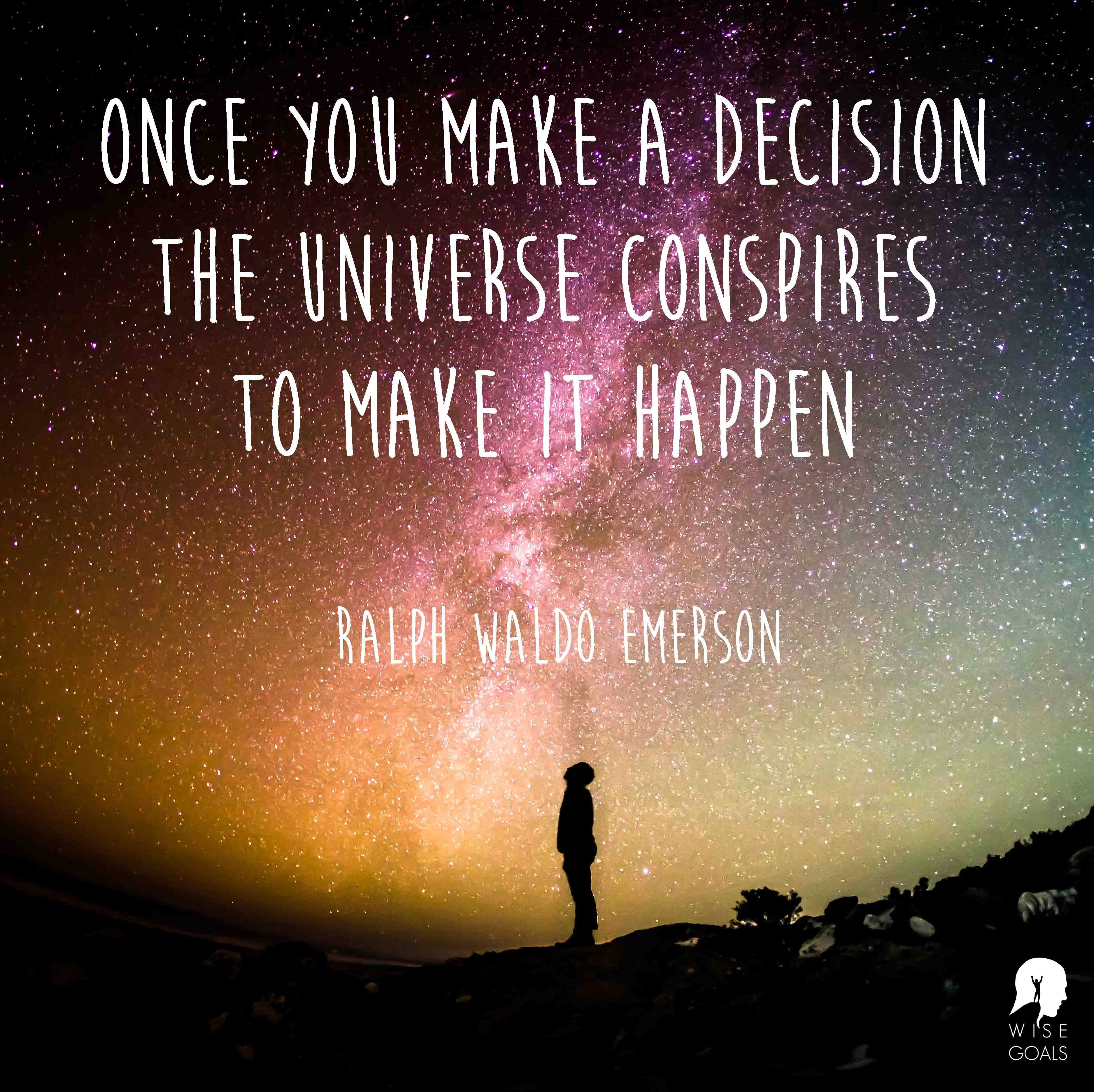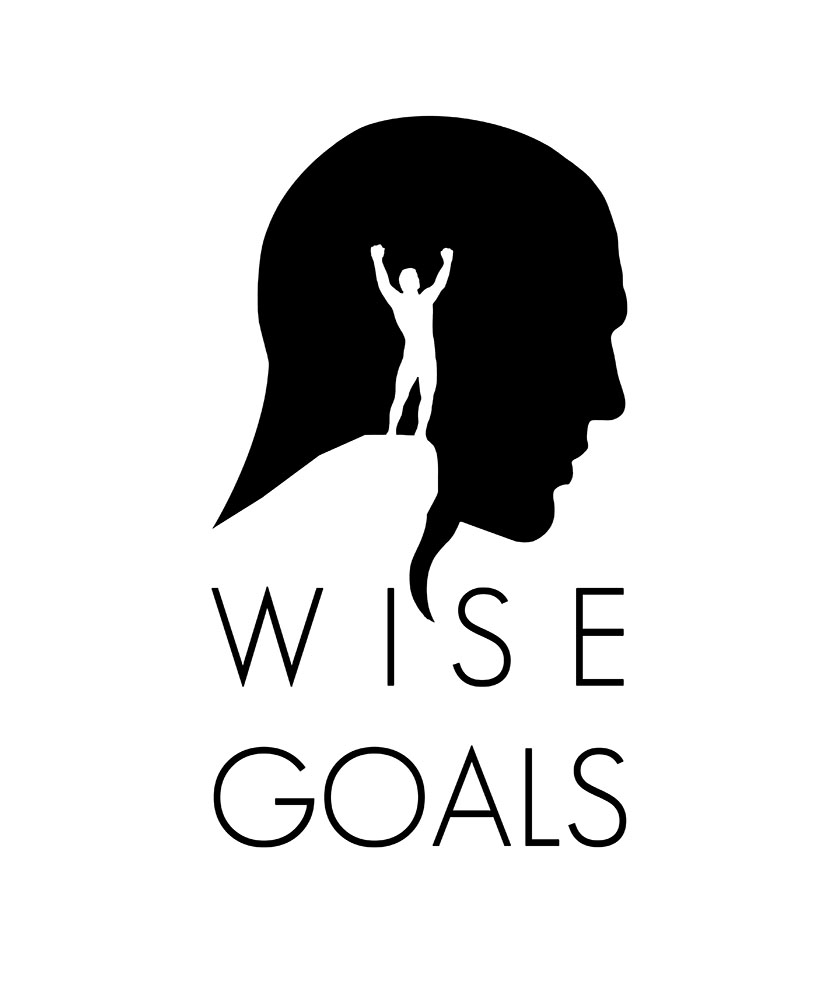
smart goal Setting: Master this Important Life Skill
Are you ready to give smart goal setting a go?
Here you will learn how easy and effective smart goal setting can be. This method has been tried and tested over and over again and the results are clear. When certain things are in place, It works.
Here you will learn how to change your goals to harness the potential of the SMART model (that is, specific, measurable, attainable, relevant, and timed). Doing this is proven to give you increased focus, motivation, and commitment.
So let's go through each aspect one by one...
Making your goals SPECIFIC
Specific goals are clear and concrete rather than vague. Having specific goals works because you know exactly what you have to do. The action you have to take is clear.
A vague goal would be for example, to be healthier. This is a great start. It's not either or, but both. You start with the wish to be healthy and then ask yourself to also be more specific. What do you mean by healthy? What kind of health do you want to improve first?
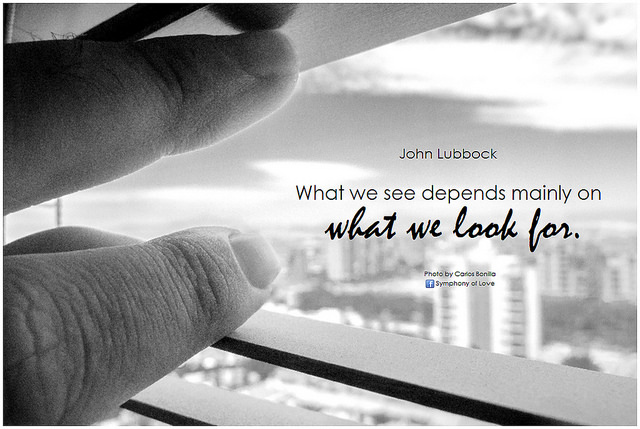 What have we decided to look for today?
What have we decided to look for today?A more specific goal would be to become more physically healthy. You can see how when you go from more healthy to more physically healthy what actions you might take become clearer.
Likewise, if you wanted to become more physically strong, the actions to take become even more clear.
So, all the goals remain true and significant. You do want to become healthy. You'll do this by focusing on your physical health and especially strength. Of course, it would be possible, and it almost always is to be even more specific.
There are various kinds of strength that might require different kinds of training. The point here is, if your first goal is vague, to spend some time exploring what you mean and going into details and specifics.
Imagine your in an argument with a boss or a partner. They say, for example, that you're not doing well. You would probably want them to be more detailed...
What do they mean? What exactly are you not doing well? Not turning up on time? Not speaking up enough? Not taking risks? They could mean anything! If you find out, you might be empowered to make changes. The same is true of your hopes, wishes, dreams, and goals.
Can your goals be MEASURED?
Making your goal measurable achieves two desirable things:
- You know exactly when you have completed your goal
- All the way through your journey you know precisely how far away you are from completing your goal and therefore how much effort you will have to put in to complete it.
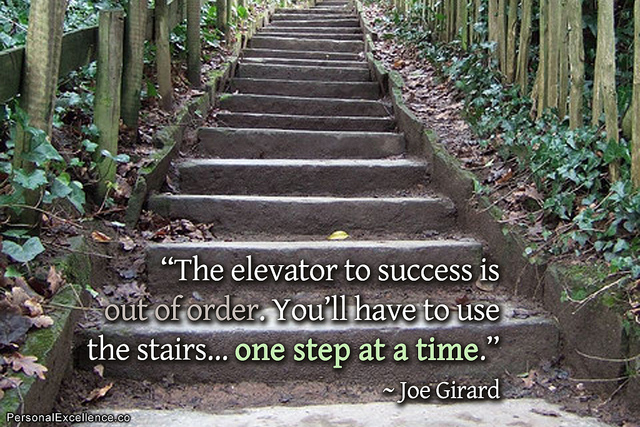 Can you see the top of the stairs yet as you take today's step?
Can you see the top of the stairs yet as you take today's step?The increased accuracy of a measurable goal means you won't be able to slip in to delusion...
Measuring makes things real. There will be no way of avoiding the facts after say 1 month when the measurement hasn't changed.
There are plenty of valid reasons why you might resist doing this. Delusion can be feel comfortable. Being crystal clear about your target may mean coming face to face with a lack of progress. You may fear feeling the feelings that come with that... frustration, disappointment, or having to tell others and their responses.
There are lots of fears and worries that can get in the way. If you have a lot going on, you may not be in a place where you are willing to experience that. When I work with clients on what they want, some resistance to getting specific and measurable is inevitable. Identifying those fears is often enough for them to lose their grip.
"If... then" work can be especially valuable here.
- If you don't reach your goal, then you will ___________________.
- If you don't set a goal then you will ____________________.
- If you feel disappointed, then you will ____________________.
- If you set a goal and then do nothing, then you will ______________________.
When you've thought through some of the eventualities they become less of an obstacle.
Are your goals ATTAINABLE or in la-la land?
Smart goal setting means setting the kind of goals that influence you in a clear undeniable way. The primary purpose of smart goal setting is to cause you to move... If your goal is too high your commitment will likely be low. Excitement will dwindle.
The thing to be honest about is your current ability and circumstances. You know doubt have some things where your ability is very high, and some where it's currently very low. What's attainable for you in one particular area is of course a very unique thing.
Plus it pays to be realistic because when your goals are attainable your ability also grows. Then next time, what's attainable will be higher.
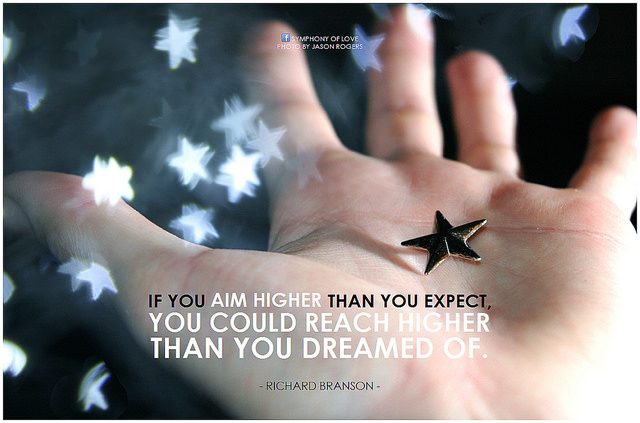 The brave but simple step of adjusting our aim a little higher, towards what we have never done before
The brave but simple step of adjusting our aim a little higher, towards what we have never done beforeIf you set a goal that is way too difficult for you, you're unlikely to spring into action because, "what's the point, I'm never going to get there anyway." If the goal is too easy you are naturally prone to think, "no rush, I'll do it later."
Having an attainable but challenging goal really is the ideal.
When you're thinking about ten or twenty year goals you shouldn't be afraid to aim high. The further away the goal, the more room for all kinds of unexpected positive things happening. Who knows what's possible?
To read deeper into what makes a goal realistic check this out.
How RELEVANT is your goal?
Other words that might replace relevant are important, significant, meaningful...
So, how relevant is your goal to you?
Are there any others goals that are more relevant to focus on first?
One of the most important things I do as a coach is check my clients are climbing the right wall. If I just let them go ahead with the very first goal they mention in our coaching then I'm risking them spending significant time on something they might not have chosen given more options.
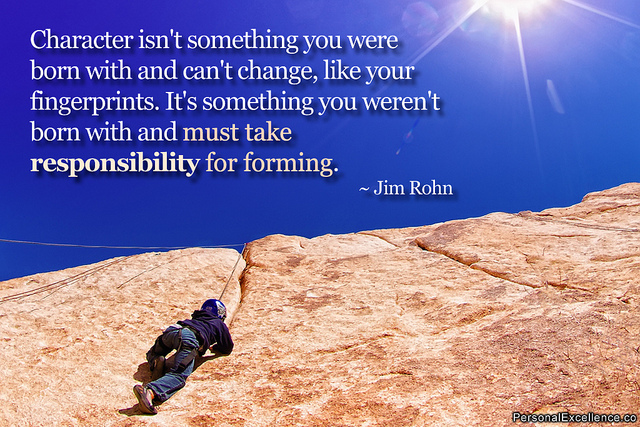 Is our character developing positively? Are we becoming more human?
Is our character developing positively? Are we becoming more human?It's my job there, and here, to ask you to zoom out for a moment. Consider some more of your goals and other things that are important to you. Then from a place of choice, which is a place of empowerment, you can choose a goal that is especially relevant for you.
Smart goal setting is partly about setting the right goals in the first place. Spending some time considering these questions before setting off will pay dividends later on.
Have you set a TIME OF COMPLETION?
Timed means exactly that. Setting a date. Set a time and date that you want to reach your goal by. This of course is just a prediction, a projection, an estimate... Even when you aren't sure exactly what you want to achieve yet, choosing a time can stir different forces within and support ideas and creativity.
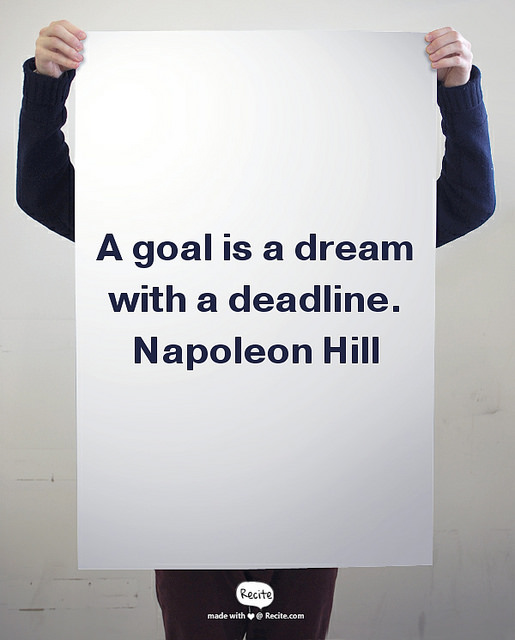 Can we change one dream into a goal today?
Can we change one dream into a goal today?So how about it... When will you achieve your goal by? Be bold and have a go. You can always change it later. Think of it as an experiment.
By using smart goal setting with support where needed you're sure to become more and achieve more... in a way completely unique to you, and at a pace of your choosing.
If you like this, you might also like...
These free smart goal setting resources:
- 100 smart goal examples in ten different areas of life (with high quality printable handouts)
- a newly designed smart goal setting worksheet to walk you through setting a smart goal
- free set your goal today cards and set daily smart goals
- more on what makes a goal attainable or realistic
- Home
- SMART Goals
Recent Articles
-
Break Through With 11 Stylish Goal Setting Worksheets (PDF, FREE)
Use these goal setting worksheets and templates to work through your goals and dreams creating motivation & momentum. Choose from 11 inspiring worksheets! -
Unlock Your Potential with Coaching & Positive Psychology | WiseGoals
WiseGoals empowers leaders, students, and athletes to unlock their potential through evidence-based coaching psychology, focusing on both success and happiness -
Wellbeing Coaching for Young Adults | Achieve Balance & Success Today
Looking for expert wellbeing support? Our certified coaches help young adults manage stress, stay motivated, and thrive in university life. Free first session! -
Wise Goals Health and Wellbeing Coaching Consultation
Take control of your wellbeing journey. Our certified coaches offer tailored advice in health, mindset, and wellbeing. Book your consultation for lasting change -
Healing a Traumatic Childhood: Mental Health Goals for a Bright Future
Find out how focusing on self-compassion, optimism, and meaning can counteract the effects of a difficult childhood and lead to lasting mental well-being.
